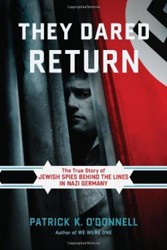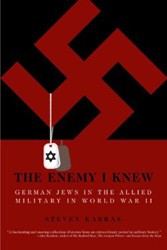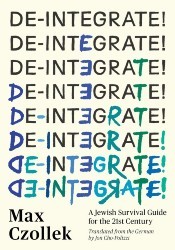Lawyers Without Rights is not just a coffee table book, nor is it an ordinary history of the fate of Jewish lawyers and notaries in Nazi Germany. Rather, the volume of some 500 pages is divided into different sections, including a short history of jurisprudence in the Weimar Republic, a list and discussion of the Nazi laws that excluded Jews after 1933, and details of the subsequent fate of Jewish lawyers. The book’s major contribution, however, is a biographical dictionary of Berlin attorneys of Jewish origin who became victims of Nazi racial laws.
On April 7th, 1933, four months after Hitler was appointed chancellor, the Nazi-run government promulgated the Law for the Restoration of the Professional Civil Service, which barred anyone not of “Aryan” descent from public employment and established the principle of racial differences between Jews and Aryans. The law marked the start of the Nazi policy to drive Jewish professionals such as academics, physicians, and academics from public employment. Focusing on the fate of 1,807 of the 1,835 Berlin Jewish attorneys at the time, including those who converted to Christianity, Ladwig-Winters notes that the 1933 exclusion primarily affected young attorneys who were born after 1902. With some exceptions — including Jews who had fought in World War I — most of these attorneys lost their notary licenses by the end of 1933. Following the Nuremberg laws in 1935 and Kristallnacht in November 1938, a general occupational ban on all Jewish attorneys went into effect.
Ladwig-Winters states that most Aryan lawyers, like the German Federal Bar itself, did not protest the government action against their fellow attorneys. She suggests that they may have feared retribution if they showed support for their Jewish colleagues, but it was more likely that they were content to benefit from the increased number of available clients created by the vacuum of Jewish attorneys.
Ladwig-Winters also highlights how the occupation ban affected Jewish women attorneys. In 1933, there were nineteen women of Jewish origin admitted to the Berlin bar, which represented about one percent of all Jewish attorneys. This small number of attorneys could be attributed to the fact that women were only allowed to obtain law degrees beginning in 1922. One Jewish woman who was allowed to continue with her admission to the bar was Hannah Katz. Because of her international prominence as the lone German representative on the board of the international law association, her position was conditioned on the fact that she was a practicing attorney. In 1941, Katz was able to immigrate to the United States.
In this extensive work, Ladwig-Winters examines the many, and often unexpected, ways in which individual lawyers were affected by the Nazi ban on Jewish attorneys. Dr. Max Pick, for example, lost his license as a notary in 1933 but was allowed to continue his practice until 1936; he committed suicide in 1937. Isaak Rosentretter was able to practice law until he emigrated in 1936, only to have the Nazi government issue an arrest warrant for tax evasion.
Not only will Lawyers Without Rights be an enduring work of scholarship; it also couldn’t be more timely. As Benjamin B. Ferencz, chief prosecutor for the United States in the Einsatzgruppen Case at the Nuremberg trials, states in his foreword: “That a book published in 2018 by the American Bar Association should focus on the prosecution of lawyers … during the Third Reich … reminds us that the bleak lessons of such an ignominious past are relevant as ever. The failure to enforce law and time-honored principles of justice still poses increasing threats to people everywhere.”





